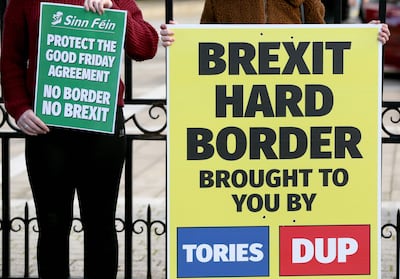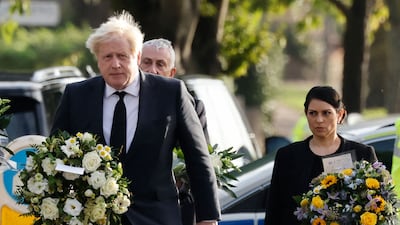As a junior reporter with the BBC in Northern Ireland, I met Airey Neave. He was one of the big names in politics at the time and a close confidant of the then Conservative party leader, Margaret Thatcher. Neave took part in a TV programme along with me and Gerry Fitt, an Irish nationalist MP from Belfast. The programme was about the inevitability of a general election across the UK, which would eventually turn Thatcher into one of the most formidable prime ministers in British history.
At the end of the programme, I chatted with both men and while they strongly disagreed on politics, they were friendly and treated each other with respect – something good politicians generally do. The next day, Neave was murdered. An Irish terrorist group, the INLA, put a bomb under his car.
In 1990, another close confidant of Thatcher, the MP Ian Gow, was murdered by the IRA, also an Irish terrorist group. Thatcher herself narrowly escaped the IRA bomb that blew up the hotel in which she was staying in Brighton for the Conservative party conference in 1984. Five people were killed in that bombing, including the Conservative MP Anthony Berry. A Unionist MP in Northern Ireland whom I also knew, a Christian minister, the Reverend Robert Bradford, was shot dead by the IRA while meeting some of his constituents. Fitt himself was disturbed one night by a mob who invaded his house in Belfast. He drove them away by waving, though not using, his 9mm pistol.
These – and many more violent attacks on politicians – come to mind because of the shocking killing of David Amess, a Conservative MP who was stabbed to death in Essex while going about his business conducting meetings with members of the public in his constituency.
British politicians are in shock at Amess’s death, and so is the entire country. It comes five years after the killing of the Yorkshire Labour MP Jo Cox. She was stabbed and shot by a far-right extremist, again, as she went about her job. As we pause to remember Amess and hope that this new shock may bring a better kind of civility to British politics, I want to remember all those other attacks on politicians that had an Irish connection because these attacks stopped a little more than 20 years ago.
They stopped because that generation of politicians in Great Britain, Northern Ireland, the Irish Republic and the US carefully crafted the peace deal we now know as the Good Friday Agreement of 1998. But that agreement – and therefore peace in Northern Ireland – is once more under threat, putting many more lives at risk. The reasons, as is often the case in Northern Ireland, are complicated, and so I will simplify, but only a little, with one word: Brexit.
The British government, which agreed to a Brexit deal with such a fanfare in December 2020, is right now, less than a year later, trying to renegotiate parts of that deal that give special status to Northern Ireland, by allowing it to retain the privileges of the EU single market. The man who negotiated that deal and described it as “excellent", David Frost, and British Prime Minister Boris Johnson, who recommended it to the House of Commons, are now saying – according to Mr Frost – that parts of the deal were “always provisional". That is like saying getting married is “always provisional".

The Brexit deal was trumpeted as a binding agreement in an international treaty. If the UK insists on changes, some predict a UK-EU trade war. EU members accuse Mr Johnson of bad faith. An Irish radio station called me to ask if I thought Mr Johnson could ever be trusted. In Northern Ireland, Ian Paisley, the Democratic Unionist Party MP, says that as far back as 2019, Mr Johnson told him that he was already planning to tear up or renegotiate the deal, even before it was finalised.
Trust and Mr Johnson do not seem to go together. Three big questions, therefore, touch on his credibility. Do unionist voters and their leaders in Northern Ireland (mainly from the Protestant community) really believe the British prime minister has their best interests at heart? Do the governments of the EU have the patience to renegotiate with someone they have reasons not to trust? And two years after Mr Johnson won the UK general election with the slogan “Get Brexit Done", do British voters trust him, with Brexit clearly anything but “done” since it is constantly being renegotiated?
In a week when we mourn the death of a British politician, we should remember that the worst among us sometimes use politics or religion as an excuse for despicable violence. We should be very careful that we do not give the worst among us excuses to reignite an old conflict on the island of Ireland through the carelessness of politicians who are playing not just with words. They are playing with people’s lives.






















